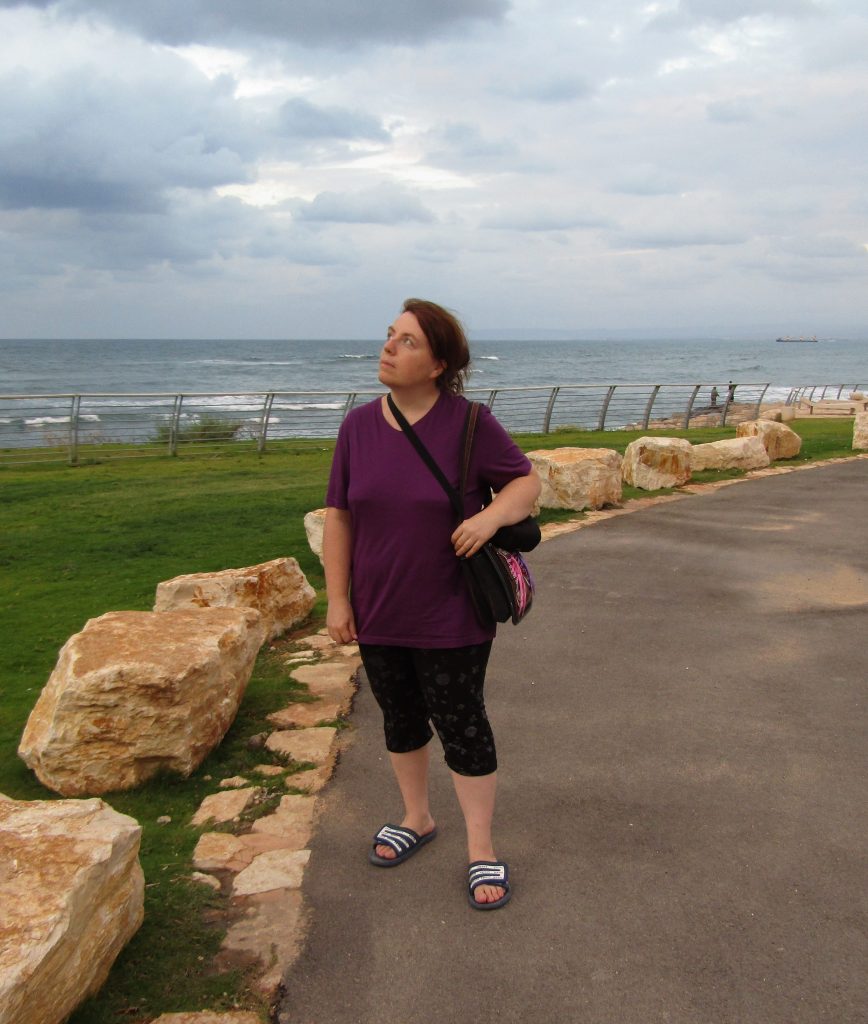It was a date that Alla Chernysheva was able to recall without hesitation: on June 10, 2007, she went to a meeting about the woods near her home in Khimki. She had seen a flyer about this event and went to see what it was about. There, she learned about the government’s plan to cut down the forest in order to build a highway. After the meeting, she called the organizer, Evgenia Chirikova. Not only do they remain friends to this day, but they also work together. On this June day, Alla’s trajectory shifted; she started realizing what she now considers her mission. Today, Alla reports on civil society and environmental issues in Russia as a journalist for Activatica.org and as editor of Eco Defense of the Moscow Region. She often plays an activist role as well, protesting trash dumps or the destruction of open, green space near her home.
Though the Khimki forest movement was the beginning of Alla’s participation in civic protest, she quickly and bravely exposed herself through this work. Already, during the protests, people had been severely beaten (one journalist, Mikhail Beketov, suffered brain damage and other horrendous injuries, which led to his death some years later). Still, despite the dangers, Alla continued her efforts. One day, after a protest rally, police officers showed up at her home and arrested her along with her two young girls. Alla described this episode as an example of “moments of unpleasantness” when I asked her about whether she experienced fright as a result of her activities.
This “unpleasantness”, she elaborated, comes from the government. She credits Evgenia for helping her when she was arrested, since she organized a campaign to protect her and helped with lawyers. Evgenia returned the praise, describing Alla’s bravery and her unwillingness to sign any incriminating documents or write confessions for the police, despite them telling her she had to report on her “crimes” or lose her children. While Alla was locked up, many people involved in the Khimki movement came and stayed near the police office.
In the end, despite these tribulations and the fact that a road was built through the forest, Alla considers the Khimki campaign an almost-success. Thanks to the protests, thousands of hectares of forest were saved; rather than destroy the entire area, only portions were cut down for the road. The Khimki movement was successful in other ways as well. Alla explains that, thanks to her activism, she has realized a lot about what is happening in her country. During the Soviet Union, she says, “people were to sit quietly”, but after the 2000s, people began organizing meetings and “learned how to fight for their rights,” start non-governmental organizations, and more. This is how Alla has changed as well. She has learned to defend her rights and be active.
According to Alla, the environment is one of the main themes of protest in Russia today, across the entire country. As a journalist for Activatica.org, she has written over a thousand articles detailing different movements in diverse regions. Putin has seriously weakened environmental legislation, is pursuing fossil fuel extraction, and is building garbage dumps everywhere, she says, which leads to civic actions. However, she also says the majority of actions are unfortunately not successful. She cites an example of a campaign she participated in to protect a square near her home and the fact that the government has built many garbage dumps already. Even though success is far from inevitable, Alla keeps writing about and participating in civic actions to protect people and the environment because “you do what you can” and “it’s my mission.”
Writing about actions in Russia is extremely important. On the whole, Russian mass media is silent about environmental issues and protests, so Alla has stepped in to not only fill in a gap, but to support activists by sharing information about their efforts. Doing so not only helps their cause, but the publicity can also protect them.
Alla’s advice for others who are interested in activism follows along those lines. First, she suggests, spread information about the issue, build groups on social media and connect with others who are concerned. Second, decide whether to do a mass action, file a lawsuit or grievance, or pursue other tactics. Then, share information with people who live nearby, with the media, and on social sites.
This worked for the Khimki protests, after which “people realized they can do something,” Alla included. Indeed, twelve years later, she is not only participating in other actions, but is spending her time sharing information about protests all across the country, despite the “unpleasantness” she has already incurred. Alla’s courageousness and diligence is allowing her to fulfill her mission and help protect people and the environment across her country in a meaningful way.
This profile is part of a series that was done with the support of the Henry M. Jackson Foundation as a part of their Leadership Fellows program. Learn more about the project here.



Share Your Thoughts